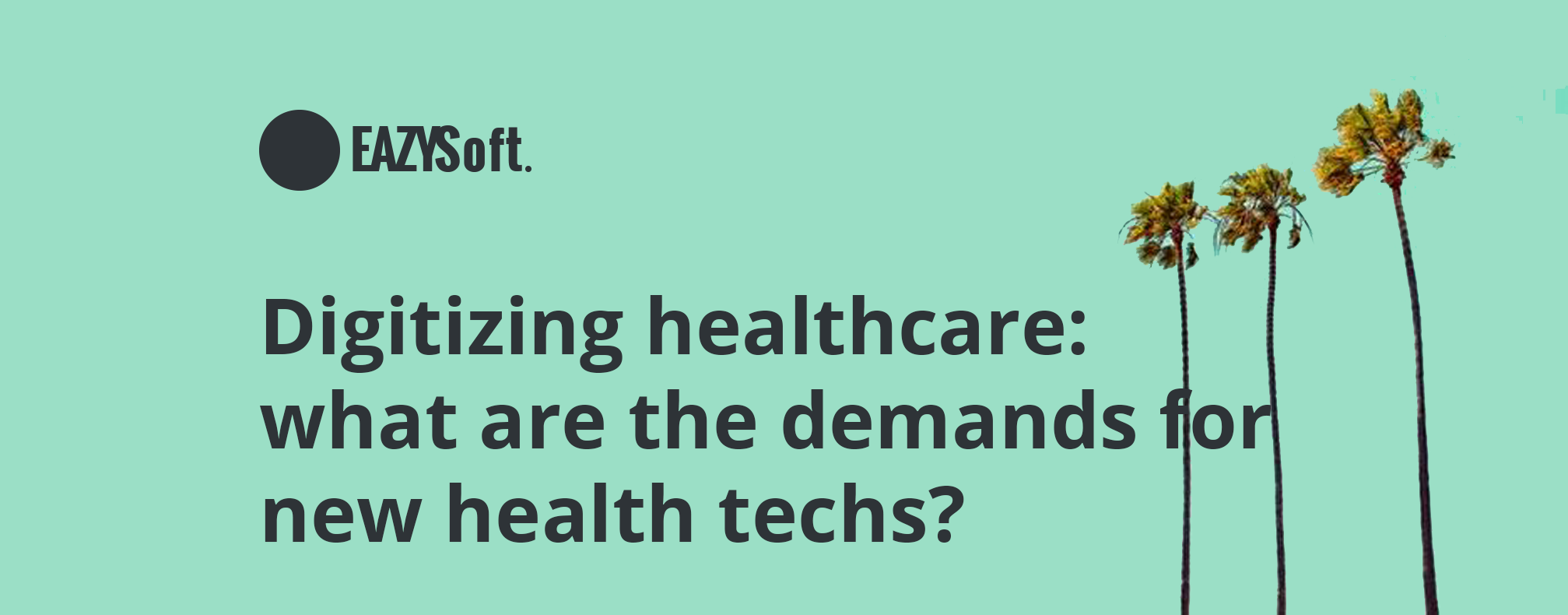
Digitizing healthcare: what are the demands for new health techs?
Although healthcare technologies will never replace direct communication between doctors and patients, they will enhance their relationships and make them stronger. The sooner they can identify a problem, the quicker they are able to access the right treatment. Digitizing healthcare is the answer to a fast-growing demand on global shift towards a patient-oriented medicine.
Healthcare system is changing: such advanced technologies as e-Health, IoT, analytics, and telemedicine come into hospitals and transform the whole sector.
Digital healthcare may soon provide the ability to process information from thousands of individuals. Doctors and patients will get shared access to electronic health records: test results, images, examinations, prescriptions. But the more varieties are there in the devices used in people’s treatment and processing their personal information, the stricter are demands to them.
A digital transformation strategy is successful for most industries, healthcare is not an exception. New technologies appear on a weekly basis and it’s not an easy task for staff to keep up with them, some of the devices and equipments are still in the process of gaining both doctors’ and patients’ trust. The first and foremost demand on this step is accessibility, accuracy in processing data and reliability on provided outcomes.
Majority of healthcare techs are focused on diagnosing, screening and managing illness and disease. Unless you have a specific need, most people will not have to visit the emergency room and connect their doctor the same way as they reach their friends. In the last years, we have been introduced to such devices and apps which monitor heart rate, blood pressure and blood sugar levels, track weight and body fat percentage. To get a whole picture of a patient’s health physicians, clinicians and nurses will want all that information to be available at the point of care for their patients. Personal data is now stored in different systems, and it decreases the quality of care that a hospital is providing. To address this, information systems must be connected, accessible and aggregated. Providing full knowledge at the point of care can allow a doctor to walk into a patient’s room and with a touch of a screen, show the patient their situation and collaborate on a plan for recovery. So another demand is a high integrity of all data taken from different devices and stored within an information system of a provider.
Critical to the digital transformation is the network infrastructure, which acts as the hospital’s central nervous system. Nurses use tablets to record patients’ symptoms, and to gather and record the information throughout the patient’s stay. Doctors tap into the network via wireless devices to order prescriptions or lab tests. The third requirement of new technologies is a compatible infrastructure.
The benefits that digital technologies bring to healthcare are numerous, though there are concerns about its implementation. Health technology tools often require intimate knowledge of a patient’s medical past to produce accurate results. Here issues of privacy and consent become apparent. Today’s hospitals are moving to ensure that appropriate security measures, like cloud-based platforms for example, are in place for this sensitive information. Healthcare providers must meet the demand of ensuring a high level of data security which will prevent any information breaches.
Creating a digital hospital requires leadership and innovation. Technology must be viewed strategically in order to lay a foundation for the future. So, a digital strategy implementation plan must be on the agenda, and improved efficiency along with a patient driven orientation are necessary for high compatibility within the market. But when your organization specializes in healthcare, not in IT, it is highly recommended to choose reliable partners you can trust and make use of their expertise.
